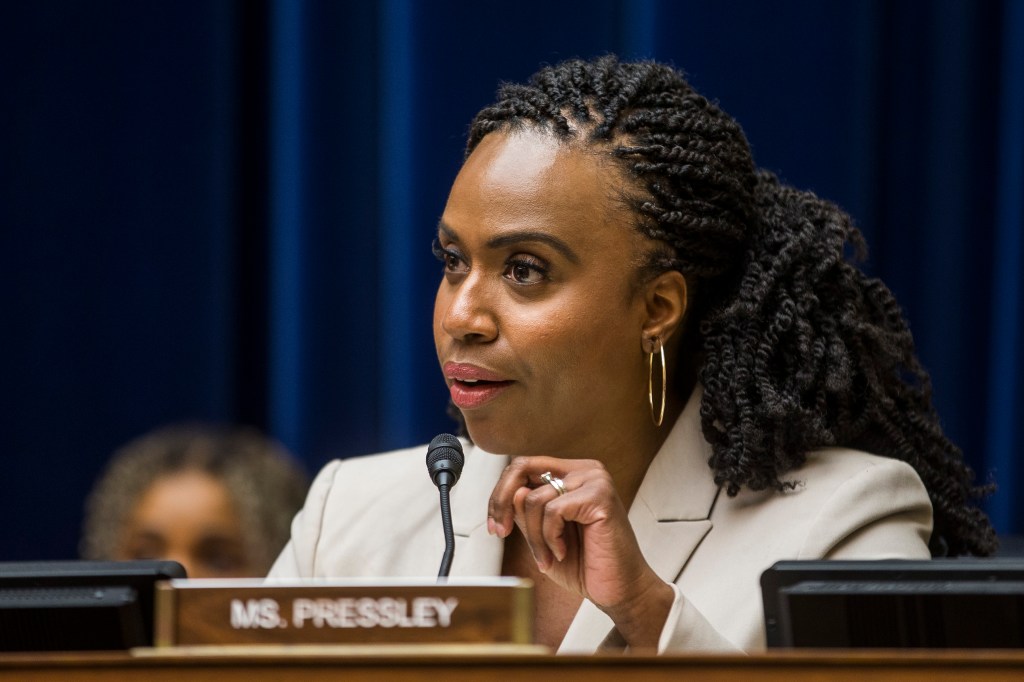Lawmakers in the House and Senate jointly introduced a bill today that would effectively ban the use of facial recognition technology by federal law enforcement agencies in the United States.
Sponsored by Senators Ed Markey and Jeff Merkley and Representatives Pramila Jayapal and Ayanna Pressley, the Facial Recognition and Biometric Technology Moratorium Act of 2020 was written to “prohibit biometric surveillance by the Federal Government without explicit statutory authorization and to withhold certain Federal public safety grants from State and local governments that engage in biometric surveillance.”
Videos by VICE
The legislation comes one day after news broke that facial recognition technology led to the false arrest of Robert Williams, a Black man from Detroit who was arrested by police officers in front of his wife and two young daughters. According to a report from The New York Times, Williams was detained for 30 hours before the charges against him were eventually dropped.
The new legislation also comes as companies like IBM and Amazon have pulled access to their facial recognition technology from law enforcement agencies.
“Facial recognition is a uniquely dangerous form of surveillance. This is not just some Orwellian technology of the future—it’s being used by law enforcement agencies across the country right now, and doing harm to communities right now,” said Evan Greer, Deputy Director of Fight for the Future, a digital rights group that has been calling for a ban on the use of facial recognition by law enforcement agencies.
“This legislation effectively bans law enforcement use of facial recognition in the United States. That’s exactly what we need right now. We give this bill our full endorsement,” Greer said.
In the last year, a handful of local governments have banned the use of facial recognition by police in their cities, including San Francisco, Oakland, and Somerville, Massachusetts.
Racial bias in facial recognition technologies is well known, with studies showing the technology has a difficulty reading the faces of people of color and misidentifies them at a higher rate when compared to people who are white. Machine learning experts have also widely condemned the use of predictive algorithms by police, noting that these systems reproduce biased outcomes of the criminal justice system.




